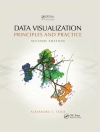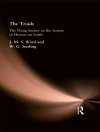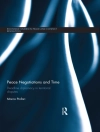This book gives you all you need to know about action research, why you need to know it and how it can help you become a self-reflective practitioner-researcher. It provides the ideas and frameworks to understand action research, combined with a practical workbook to guide you through the practicalities and complexities of doing action research in your own context.
Inside you will find:
- An action plan to help you embark on your project
- Guidance and advice on learning to ask the right questions as you progress
- A full resource on writing up and communicating your results
- Inspiration to explain the significance of what you have achieved, so that other people can learn with and from you.
Accessible and insightful, this is the complete start to finish guide to doing influential action research. It is the ideal companion for students and researcher-practitioners in any research setting, from education and health to business.
Jadual kandungan
Acknowledgements
Introduction
PART I: WHAT DO I NEED TO KNOW?
Chapter 1: What is action research?
Chapter 2: Who can do action research?
Chapter 3: The values base of action research
Chapter 4: Critical times for action research
PART II: WHY DO I NEED TO KNOW?
Chapter 5: Why do action research?
Chapter 6: The responsibility of practitioner-researchers: contributing to new practices and new learning
Chapter 7: The responsibility of practitioner-researchers: contributing to new thinking and ideas
Chapter 8: The responsibility of practitioner-researchers: engaging with the literatures
PART III: HOW DO I FIND OUT?
Chapter 9: Thinking about doing an action research project
Chapter 10: Planning to do your action research
Chapter 11: Carrying out your action plans
Chapter 12: Evaluating the quality of your plans, practices and research
PART IV: HOW DO I GENERATE EVIDENCE TO TEST THE VALIDITY OF MY KNOWLEDGE CLAIM?
Chapter 13: Monitoring practices and gathering data
Chapter 14: Working with data: analysing, authenticatin and interpreting
Chapter 15: Generating evidence from the data and making knowledge claims: summary chapter
PART V: HOW DO I TEST AND CRITIQUE MY KNOWLEDGE?
Chapter 16: Testing the validity of your knowledge claim
Chapter 17: Establishing the legitimacy of your knowledge claim
PART VI: HOW DO I REPRESENT AND COMMUNICATE MY KNOWLEDGE?
Chapter 18: Thinking about writing your dissertation
Chapter 19: Writing up your dissertation
PART VII: HOW DO I SHOW THE SIGNIFICANCE OF MY KNOWLEDGE?
Chapter 20: The significance of it all
References
Index
Mengenai Pengarang
Jean Mc Niff is Professor of Educational Research at York St John University, UK. She is also a Visiting Professor at Ui T the Arctic University of Norway, and at the Beijing Normal University and Ningxia Teachers’ University, People’s Republic of China. Jean took early retirement from her position as deputy head teacher of a large secondary school in Dorset, UK. She went into business for herself, and developed her writing. Her textbooks on action research and professional education are now used internationally on workplace-based professional education courses and on higher degree courses. Jean provides interdisciplinary consultancy work to institutions around the world where she gives lectures and conducts workshops on planning, doing and writing action research. Jean aims to contribute to personal and social betterment through educational research. She encourages everyone to make their stories public in the form of their personal and collaborative theories of practice; and she firmly believes that each individual is able to contribute to social and planetary wellbeing by explaining how they hold themselves accountable for what they do. In this way she links education with moral accountability. She tries to bring the university to everyday contexts, and everyday contexts into the university, for it is only by involving everyone, she feels, that the world will become a better place for us all.












